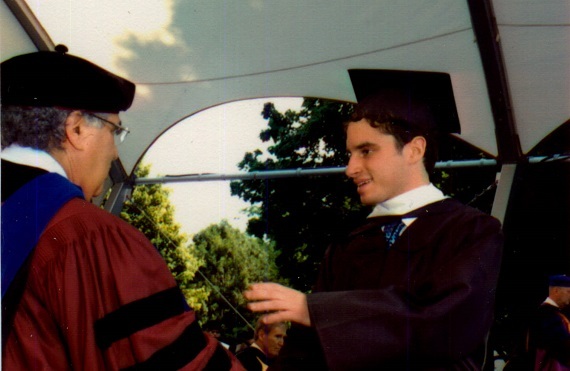'Tis the season of family life transition as many eighteen-year-olds leave the nest for college, travel and career. While nearly physiologically mature and legally independent, young adults must be ready to maintain and improve their own health & wellness as they move into maturity, often far from home. How can families and young adults have the greatest peace of mind for continued well-being and management of possible illness, injury, or other health challenges?
Don't be scared: be prepared. Create a strong foundation of information and behaviors with a P-A-P plan.
P is for PREVENTION: The best way for young men and women to manage their health is to avoid illness and injury. Keep an open family dialogue about making good health decisions based on healthy self-interest and self-respect, sound and disciplined habits of diet, exercise, hygiene, and healthy socialization in order to sustain resilient hearts, minds and bodies. Minimize time spent seated in front of computers, tablets and phones.
A is for ACTION: While on campus, or in a new city, state or country, young women and men should start or maintain exercise programs or sports participation (or, take up a social sport), and find local sources of nutritious food. Young adults should forge connections with trusted, responsible adults in their new location on whom they can rely for advice, mentoring, or in time of crisis. Hand in hand with action, the young adult should keep the old saw 'everything in moderation' top of mind.
P is for PROCEDURE: Disruption remains a trendy concept, but it's not necessarily favorable when it applies to health. Have confidence when an inevitable bump in the road arises by creating and understanding procedures for dealing with health issues and crises in advance.
Here are my top ten ideas for your family P-A-P plan:
•Keep lines of communication open among family members and close friends. Grandparents, especially, are often trusted and revered sources of valuable counsel.
•The volunteer ambulance, fire department, ski patrol, or Red Cross chapter in the new community is a great joining opportunity. Young adult volunteers learn or stay current on health and safety procedures while gaining structure, increasing interaction with responsible adults, and becoming familiar with local medical professionals.
•Family, camp, social, business, religious and fraternal relationships can help young men and women have a 'go-to' person (one who is willing to serve in such a role) near their new home. Social media makes this easier than ever.
•The buddy system is priceless, whether for working out safely or going for a bike/run/walk.
•Federal law allows a person entering a healthcare system (hospital, doctor's office, etc.) to list others with whom medical information can be shared. Make sure parents are listed on the 'patient privacy' form.
•Take time together to jointly create procedure & contact checklists. Use a 'what if' format to identify possible health & medical issues and responses, and make a contact list of 'go-to' people, the local hospital and, possibly, a referred general practitioner. Include in your discussion how to make informed medical decisions.
•Review general prevention and health behaviors before leaving home. Make sure fitness limits, nutrition guidelines and sound physical, mental, social and spiritual practices are understood.
•If a college campus is the new destination, fully explore the campus health center offerings and procedures.
•Review the terms of your health insurance coverage and identify other payment options for uncovered medical care.
•Have the family attorney create a durable power of attorney and healthcare proxy.
Young women and men coming of age today are informed and creative. Nevertheless, adult health decision-making presents new challenges. After 18 years of investment, prepare now for the next level of success in health and wellness.
Next week: building your healthcare network.

